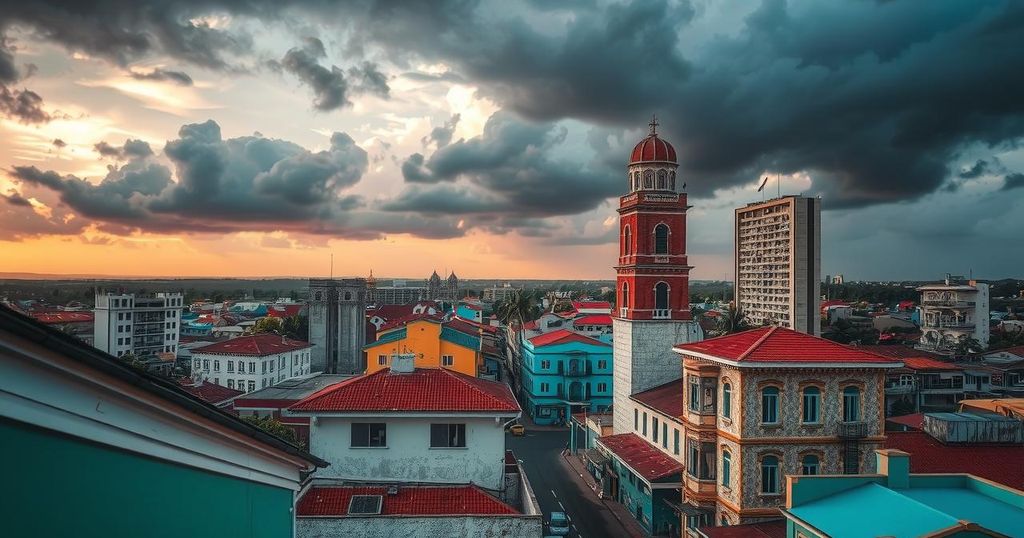Mozambique’s new Parliament convened amid opposition boycott following disputed elections. President Daniel Chapo’s victory was confirmed, but tensions rose as opposition leader Mondlane declared himself “President” after returning from exile. The internal conflict has led to significant unrest and violence, prompting discussions of a unity government.
On January 14, Mozambique’s new Parliament was inaugurated following October’s general elections, but the opposition boycotted the session. The opposition parties contest the election’s legitimacy just before the inauguration of President Daniel Chapo from FRELIMO, the ruling party since 1975. The Constitutional Council confirmed Chapo’s victory on December 23, despite acknowledging some discrepancies that it deemed insignificant.
The Constitutional Council adjusted the opposition PODEMOS party’s representation, increasing their deputies and adjusting vote percentages: Venancio Mondlane’s votes were revised from 20% to 25%, while Chapo’s votes dropped from 70% to 65%. Mondlane, who finished second, rejected the Council’s decision, declaring himself “President” after returning from South African exile, alleging an assassination attempt against him.
This electoral dispute has incited significant unrest across Mozambique, with over 300 fatalities and many injuries reported. Mondlane stated his willingness to die for his cause, motivated by his evangelical faith. Discussions are ongoing about forming a national unity government with Mondlane potentially serving as prime minister to address the ongoing crisis.
The inauguration of President Daniel Chapo amidst strong opposition and protests highlights the deep political tensions in Mozambique. The rejection of electoral results by opposition leader Venancio Mondlane and the violence following the election underline the challenges facing the nation’s democratic process. A potential national unity government remains a crucial consideration for stabilizing the political landscape.
Original Source: fides.org






